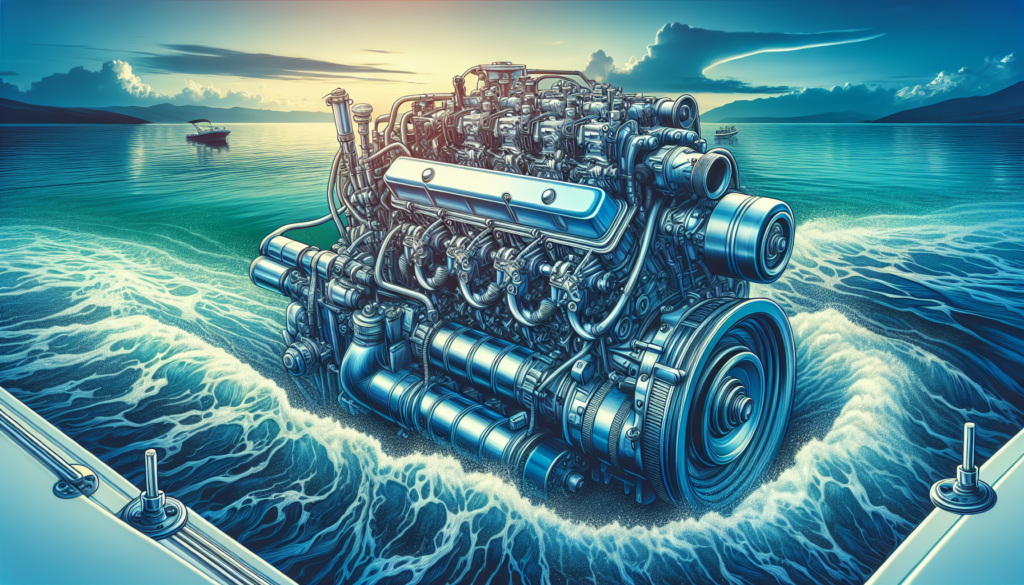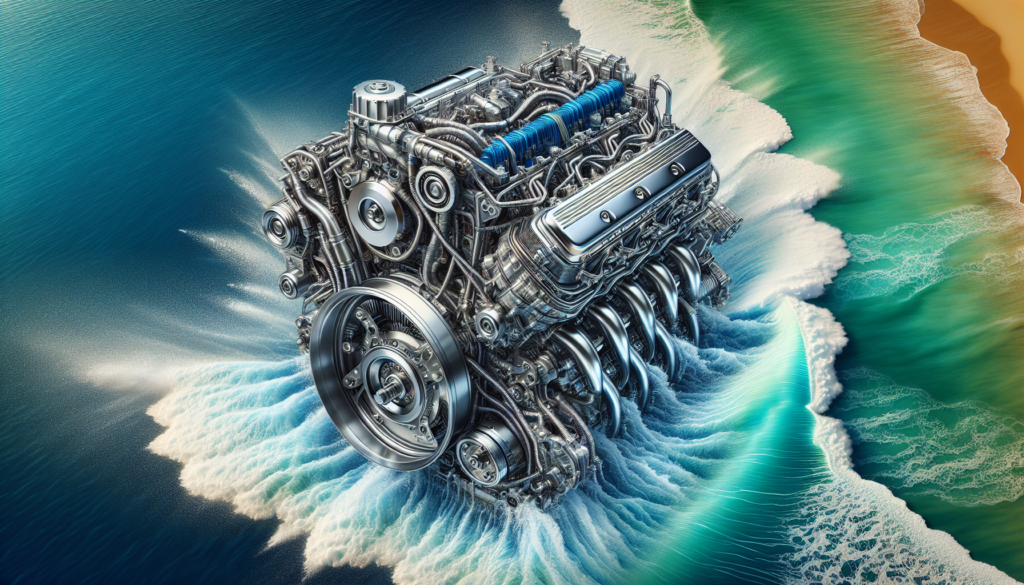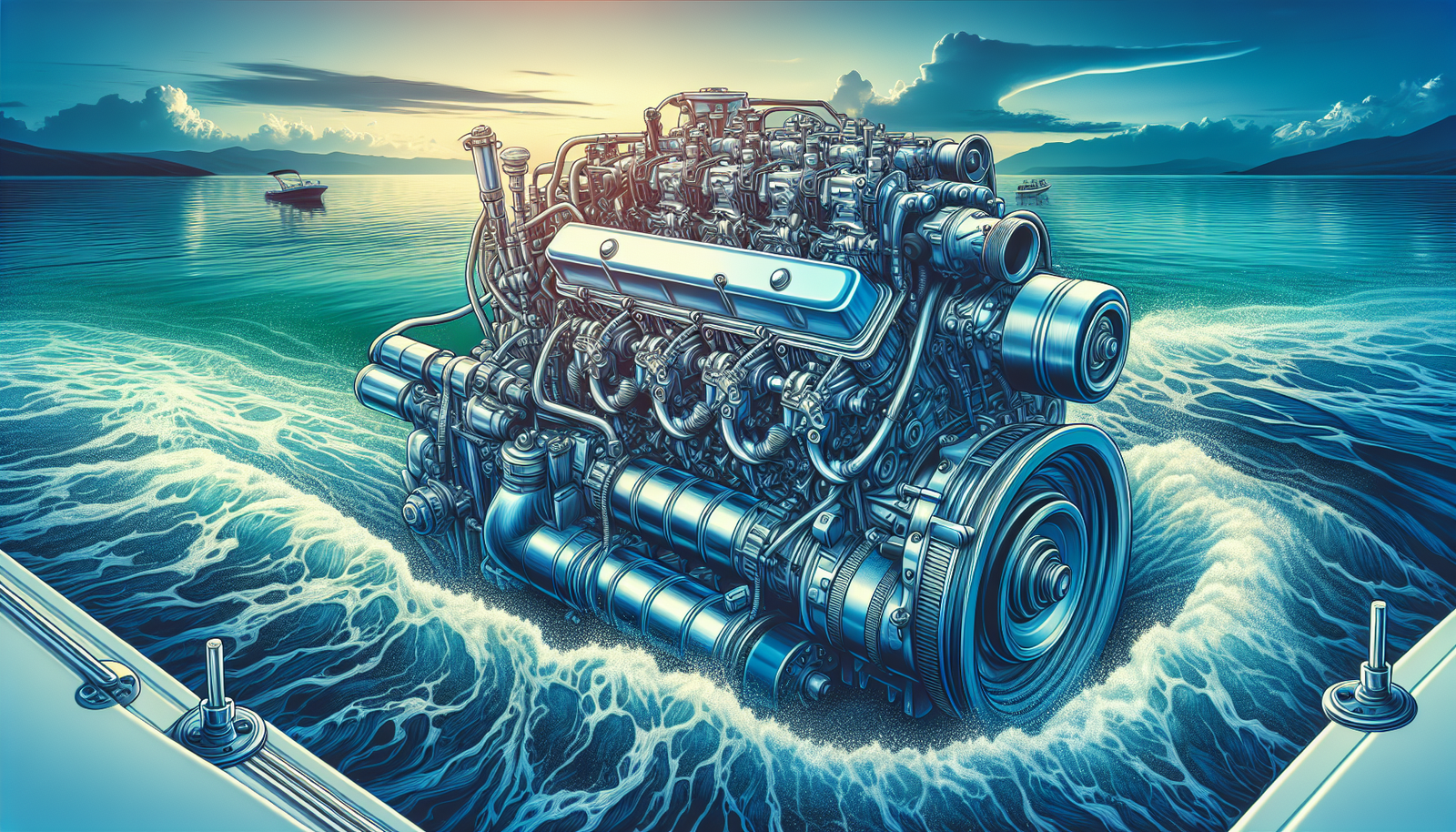Embarking on adventures at sea is thrilling, but paying attention to your boat’s engine health in saltwater environments is crucial. “How to Properly Care for Your Boat Engine in Saltwater Environments” is tailored to guide you through the essentials of maintaining an efficient, outboard motor. Get ready to navigate with confidence as this article explains the necessary steps to keep your engine performing at peak levels, even in the harshest seawater conditions. With practical care and preventive measures, you’ll prolong your boat engine’s life and keep those voyage dreams afloat.

Understanding The Effect of Saltwater On Boat Engines
Using your boat in saltwater environments can be a thrilling experience, but it’s crucial to understand the effects this type of water can have on your boat engine.
The Corrosive Nature Of Saltwater
Saltwater is notoriously corrosive, and one of the most destructive elements for boat engines. It’s capable of eating away at the metals used in engine construction, leading to loss of integrity, leaks, and eventual breakdown. The salt crystals can also deposit in cooling passages, causing overheating problems down the line.
How Saltwater Affects Different Engine Materials
Different engine materials respond differently to saltwater exposure. Plastics and rubber components, like gaskets and seals, can become brittle over time and crack, leading to leaks. Aluminum, commonly used in engine blocks, is particularly susceptible to corrosion. Iron components, though somewhat more resistant, can still rust, whereas copper components may develop a green patina.
Short And Long Term Saltwater Effects
In the short term, saltwater can cause discoloration of your engine parts and possibly minor functionality issues. In the long term, the effects can be far more severe. Corrosion can lead to breakdowns, serious leaks, and even total engine failure. The key is to minimize your engine’s exposure and apply proactive maintenance practices.
Choosing The Right Engine For Saltwater Use
Choosing the right engine for saltwater use is vital for any boat owner who plans to sail in such environments.
The Importance of Saltwater Compatible Engine
Engines specifically designed for saltwater usage have features that help them withstand the ravages of the salty seas. These features could include stainless steel components, special protective coatings, and enhanced cooling systems.
Factors To Consider When Choosing A Saltwater Engine
Consider factors such as the size and weight of the engine, compatibility with your boat, cooling systems it uses, and the availability of replacement parts. Look at the warranties offered as well, because even saltwater engines can succumb to the effects of the sea.
Recommended Saltwater Boat Engines
Numerous manufacturers offer excellent engines for saltwater use. For small to medium-sized boats, Yamaha, Mercury, and Suzuki offer really good options. For larger vessels, options from Caterpillar and MAN are worth considering.
Daily Maintenance To Protect Your Boat Engine in Saltwater
Your engine requires daily maintenance to keep it in good working condition, particularly when dealing with saltwater.
Observing the engine condition
Inspect your engine daily for noticeable changes. This includes discoloration, strange noises, performance problems, or visible corrosion.
Keeping the engine clean
After each day’s use, give your engine a thorough clean. Rinse everything down with fresh water, and give exposed metals a wipe with an anti-corrosion product.
Ensuring proper oil levels
Check your oil levels daily. Ensuring your engine is properly lubricated is one of the best things you can do to prevent saltwater damage.

Regular Engine Check-ups
Regular engine inspections play a huge part in keeping your engine healthy, particularly when operating in saltwater.
Importance of Regular Inspections
Regular inspections enable you to identify potential issues before they become serious problems. By catching and addressing signs of corrosion or wear early on, you can save yourself time, money, and hassle down the line.
What To Check During Inspections
Examine your engine for signs of corrosion, unusual noises, excess smoke, or leaks. Check oil and coolant levels, and inspect the conditions of belts and hoses.
Scheduling Your Maintenance Checks
Ideally, you should perform a quick check after each use, a more in-depth inspection weekly, and have a professional inspection yearly.
Freshwater Flushing After Saltwater Use
One of the simplest ways to protect your engine from saltwater damage is through regular freshwater flushing.
Why Freshwater Flushing is Necessary
Freshwater flushing removes salt deposits from your engine’s internal systems. It’s necessary because these salts can cause corrosion, contribute to overheating, and harm your engine’s longevity.
How To Properly Flush Your Engine
Follow the engine manufacturer’s guidelines on freshwater flushing. Most processes involve running fresh water through the engine cooling system while it’s running, then letting it drain out.
Best Time for Engine Flushing
Ideally, you should flush your engine with fresh water after each outing in saltwater.
Using Anti-Corrosion Sprays for Extra Protection
A simple but effective way to mitigate the effects of saltwater on your engine is to use anti-corrosion sprays.
How Anti-Corrosion Sprays Work
These sprays create a barrier between the engine’s metal components and the saltwater. This inhibits the corrosion process and adds a layer of protection.
Recommended Anti-Corrosion Products
Products like CorrosionX and WD-40 Marine Grade are designed specifically to protect against marine corrosion.
Correct Usage Of Anti-Corrosion Sprays
Spray the product on all exposed metal parts as per the manufacturer’s guidelines. Ensure you’re in a well-ventilated area and allow the spray to dry fully.
The Role of Fuel in Engine Maintenance
Fuel quality greatly impacts your engine’s performance and longevity.
Choosing the Right Fuel
Use fuel recommended by your engine’s manufacturer.
Effects of Fuel Quality On Engine Health
Poor-quality fuel can cause problems like incomplete combustion, which can lead to unburned fuel passing into the exhaust system leading to fouling, increased emissions, and reduced performance.
Ensuring Consistent Fuel Supply
Regularly check fuel filters to ensure a clean, consistent supply to your engine.
Seasonal Boat Engine Maintenance
Seasonal maintenance can prepare your engine for any challenges the new climate may bring.
Preparing Your Engine For Cold Seasons
Prepping for cold seasons involves changing engine oil, checking coolant concentration (for inboard engines), and proper winter storage.
Maintenance Needs During Warm Seasons
For warm seasons, regularly check your engine’s cooling system and oil levels as these temperatures tend to make your engine run warmer.
Transitioning From One Season To Another
When transitioning, thorough inspections are key to spotting seasonal wear and tear. This may involve switching from a winter-grade to summer-grade oil, or vice versa.
Case Scenarios: Dealing with Saltwater Engine Troubles
Encountering engine problems caused by saltwater is common, but recognizing and addressing these problems is crucial in preventing major issues.
Common Saltwater Engine Problems
Common issues include overheating, corrosion-related leaks or breakages, lubrication problems owing to salt buildup, rubber components turning brittle, and clogged cooling systems.
Immediate Actions to Take
If you encounter these problems, stop the engine, identify the faulty component, and seek professional help if needed.
Prevention Measures
Proactive maintenance measures like freshwater flushes and anti-corrosion sprays can prevent many of these issues.
Professional Help for Boat Engine Maintenance
It’s important to know when professional help is necessary, even if you take good care of your engine.
When To Seek Professional Help
Seek professional help when you encounter issues beyond your basic maintenance knowledge, or when your engine requires complex services like a complete servicing, replacement of components, or haul-out inspections.
Choosing the Right Marine Mechanic
Choose a licensed marine mechanic who specializes in your engine make. Consider factors like their experience, reputation, their guarantees, and the cost.
Cost and Benefits of Professional Maintenance
Professional maintenance might seem expensive, but the cost is worth it. You’re investing in your engine’s performance, lifespan, and overall safety. It can save you significant money by preventing major repairs or replacements, and ensure your engine is in its optimum state.

